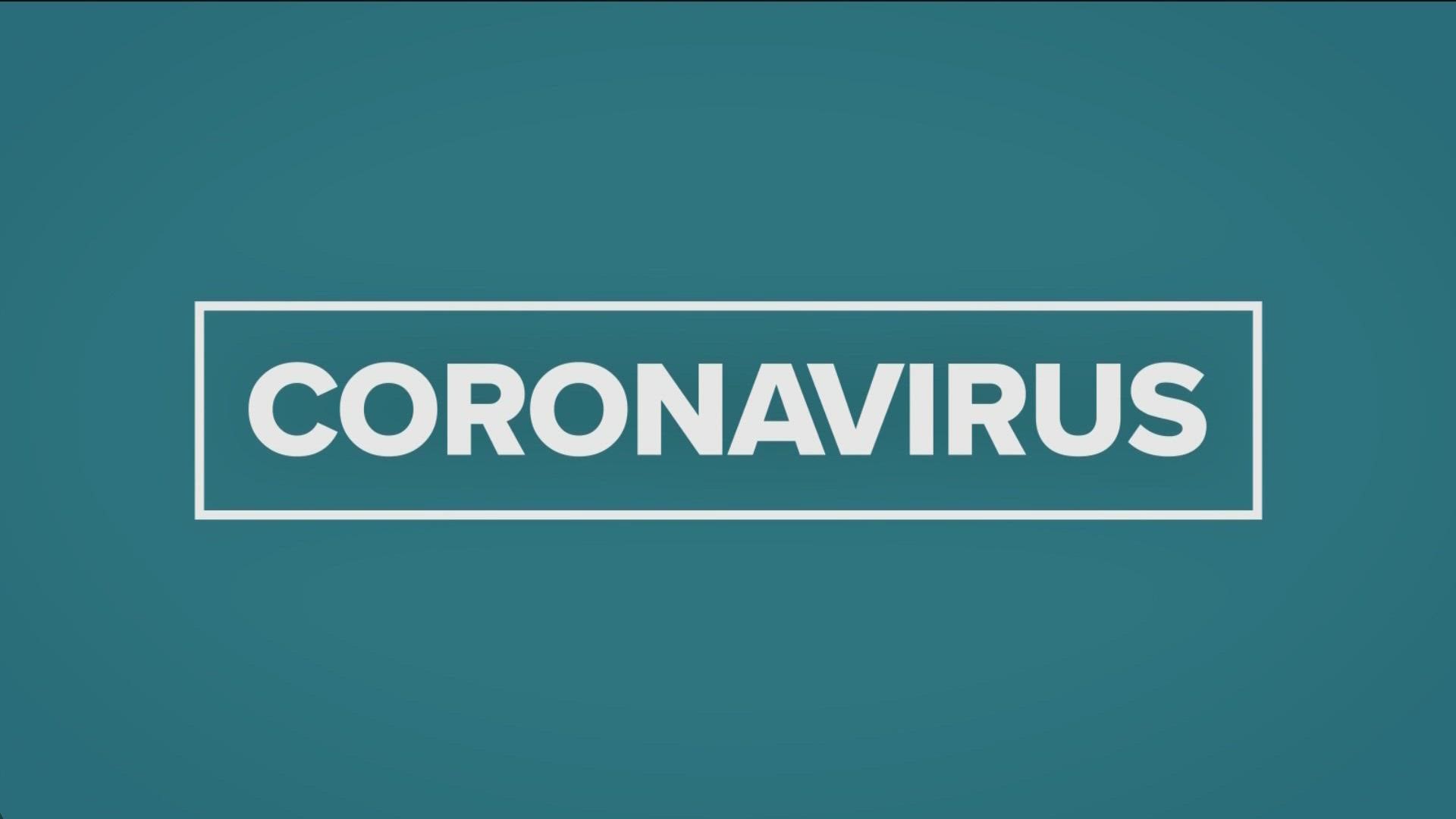GAINESVILLE, Fla — A group of researchers at the University of Florida have discovered a new way to stop the virus that causes COVID-19.
Over two years into the COVID-19 pandemic, no one is a stranger to the ever-evolving strains of the virus, each seemingly more aggressive than the first. Prominent variants included alpha, delta, omicron and now the most transmittable yet: the BA.5 variant.
However, this new finding by a team of researchers including Dr. Alfred Lewin, a molecular genetics and microbiology professor in the UF College of Medicine, and Dr. Chulbul Ahmed, a molecular genetics and microbiology research assistant professor, fights the rapidly changing variants.
When the COVID-19-causing virus enters the body it attacks healthy "host" cells, latching itself to spiky surface proteins. It essentially hijacks these healthy cells and suppresses the human inflammatory response, which allows the virus to spread. It also kills off some healthy cells.
It does this using two proteins that shut down the body's immune system and allow for them to grow and spread the virus throughout.
"The coronaviruses have exploited that strategy," Dr. Ahmed said.
The findings from UF researchers break this cycle using peptides or small proteins to block the virus.
"If you just add this peptide to the cells in which the infection is ongoing, it gets and blocks those peptides that were otherwise letting the virus propagate," Dr. Ahmed said.
It also has the ability to make antibodies to weaken immunogens even further, he said.
It's basically inhibiting the inhibitor, Dr. Lewin said.
"The virus blocks our immune system, and we block the proteins that the virus uses to block our immune system," he described. "It's two negatives and we get a positive."
What makes this finding even more remarkable, is that the protein used to block the virus, has natural origins. The researchers' method uses a normal protein that the body already makes, but they make more of it to stop the virus from spreading.
"That's why we think it should be quite safe, because we're not putting in a foreign protein," Dr. Lewin said. "We shouldn't make antibodies to this or have an inflammatory response to this because it's a normal protein."
The researchers' finding is exciting for another reason.
While this peptide, known as pJAK2, could be used as treatment for COVID-19 in those with an early-stage infection, there is also the possibility that it could be used as a preventive treatment for the virus, Dr. Ahmed said.
Testing on the flu virus showed preventive qualities, so he believes this could also apply to COVID.
"So, whoever are the family members of infected individuals, or the primary contacts of that person can all be given this drug so that they become immune to any future infection of this virus," Dr. Ahmed said.
This would be particularly important for people who are immune suppressed, Dr. Lewin added.
"If you've had a kidney transplant, and you're taking immune suppressive therapy, then being exposed is really possibly a very serious event, and if you could take a prophylactic treatment to prevent you from getting sick, that would be great," he said.
So, what's next with this finding?
Months to years of more testing, both researchers said.
The group wants to test their findings in primary human lung cells, mouse models and eventually in healthy humans through human clinical trials, Dr. Lewin said.
Once its proven safe in a healthy human, safe administering will be tested. They're looking for the possibility of a nasal or oral process of administering, he added.
The research group included Tristan R. Grams, Ph.D., a Ph.D. candidate in biomedical sciences; David C. Bloom, Ph.D., a professor and chair of the College of Medicine’s department of molecular genetics and microbiology; and Howard M. Johnson, Ph.D., an emeritus faculty member of the UF Department of Microbiology and Cell Science. Funding for this research was provided by the Shaler Richardson Professorship endowment, Research to Prevent Blindness and multiple National Institutes of Health grants, according to an article by Doug Bennett.

